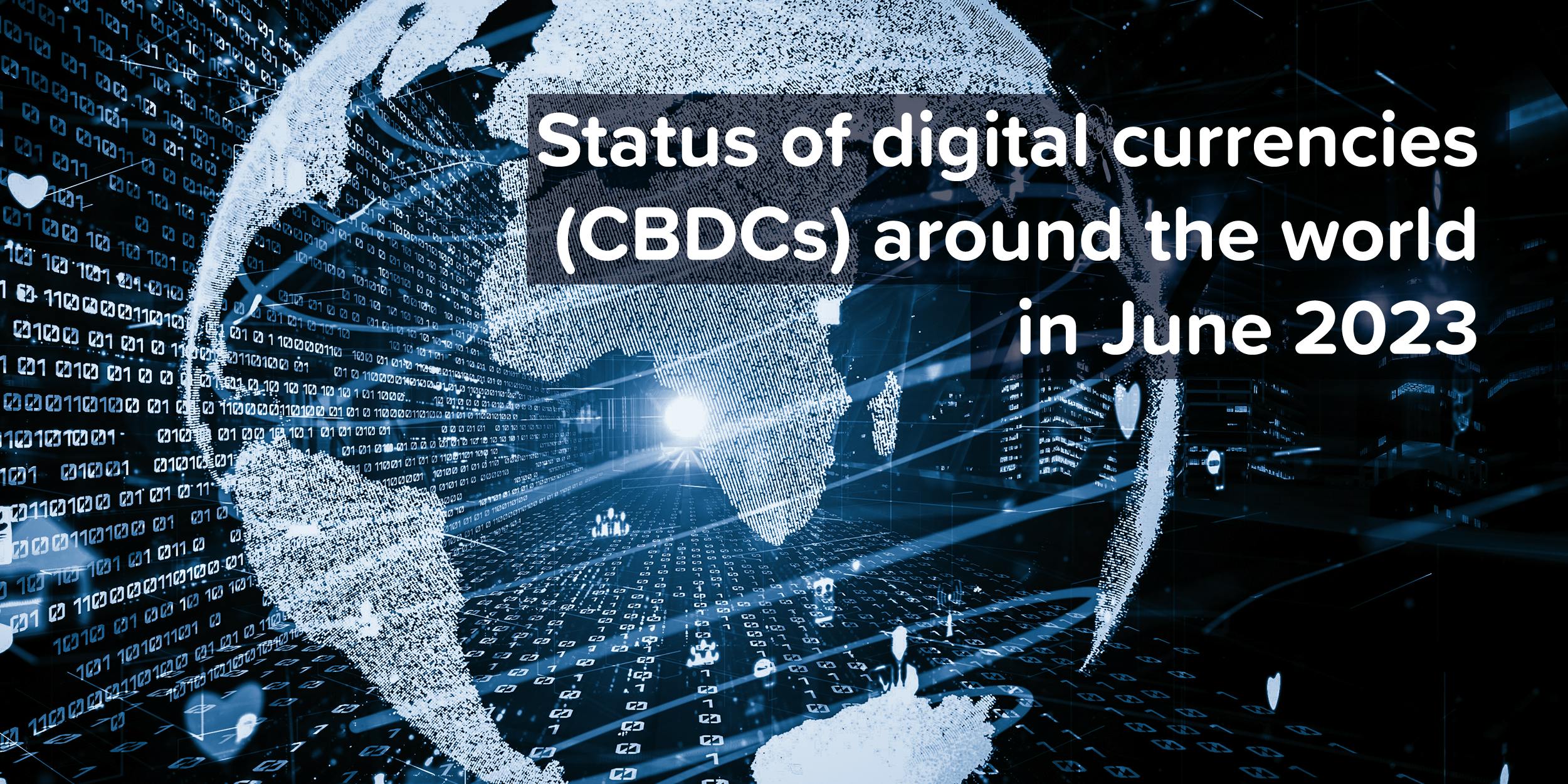Status of digital currencies (CBDCs) around the world in June 2023

- Date
- 15/06/2023
- Written by
- Lykke
- Share
- Leave your opinion (0 reviews)
A majority of the world’s central banks currently investigate whether to adopt national digital currencies or central bank digital currencies (CBDCs) or not. Let’s how examine different countries approach the matter.
When a country decides to issue a digital currency, it is declared legal tender just like its fiat currency – government-issued money not backed by a commodity such as gold or silver– that we use to pay. In short, cash. In this case, both the physical cash and the CBDC circulate in parallel. (Read more about the basics of CBDCs here)
CBDCs in place in 11 countries, mainly in the Caribbean
Bahamas was the first one out in October 2020, when it issued the Sand dollar as its CBDC is named. To date, a total of 11 countries have moved ahead with a CBDC: Nigeria, Bahamas, Jamaica and eight other island countries in the Eastern Caribbean.
When it comes to larger economies, Japan is the only G7 member that is testing a digital currency yen. Its digital-yen pilot scheme began in April 2023 and will last for several years. China is also at the forefront of setting up a digital yuan, or e-CNY and digital RNM as it also is being referred to. In May 2023, the biggest rollout to date took place when civil servants in the eastern city of Changshu started being paid in digital yuan. Another 16 countries, including Australia, India, Russia, Saudi Arabia, South Africa and South Korea are in pilot stages with their CBDC and prepare a possible full launch.
US & eurozone in the development phase
Other major economies are more hesitant. The US Federal Reserve (Fed) has made no decision on issuing a digital dollar and would only proceed with the issuance of a CBDC with an authorizing law. If it one day goes ahead, the Fed says it will ensure “the continued safety and availability of cash and is considering a CBDC as a means to expand safe payment options, not to reduce or replace them.”
The European Central Bank is approaching the end of an investigation phase that will end in October 2023 “ The Governing Council will then decide whether to move to the next phase, in which we would see the development of integrated services as well as carry out testing and possible live experimentation of a digital euro. This phase could take around three years,” the ECB said.
Switzerland bucks the trend
Switzerland is an exception. Its central bank sees no need for a digital franc for the public. The country is nevertheless a leading financial and technology center. A myriad of blockchain-related startups with a total of 5,000 employees working in more than 1,100 companies are based there. Lykke is one of these.